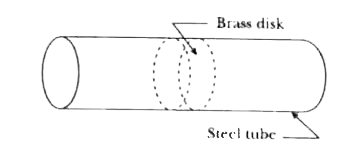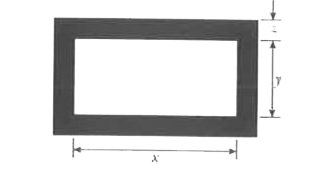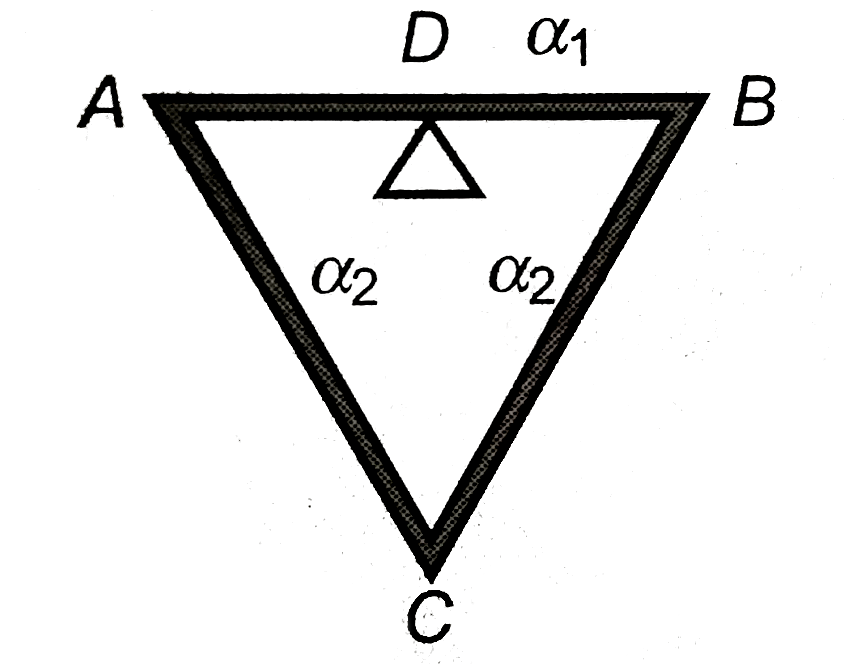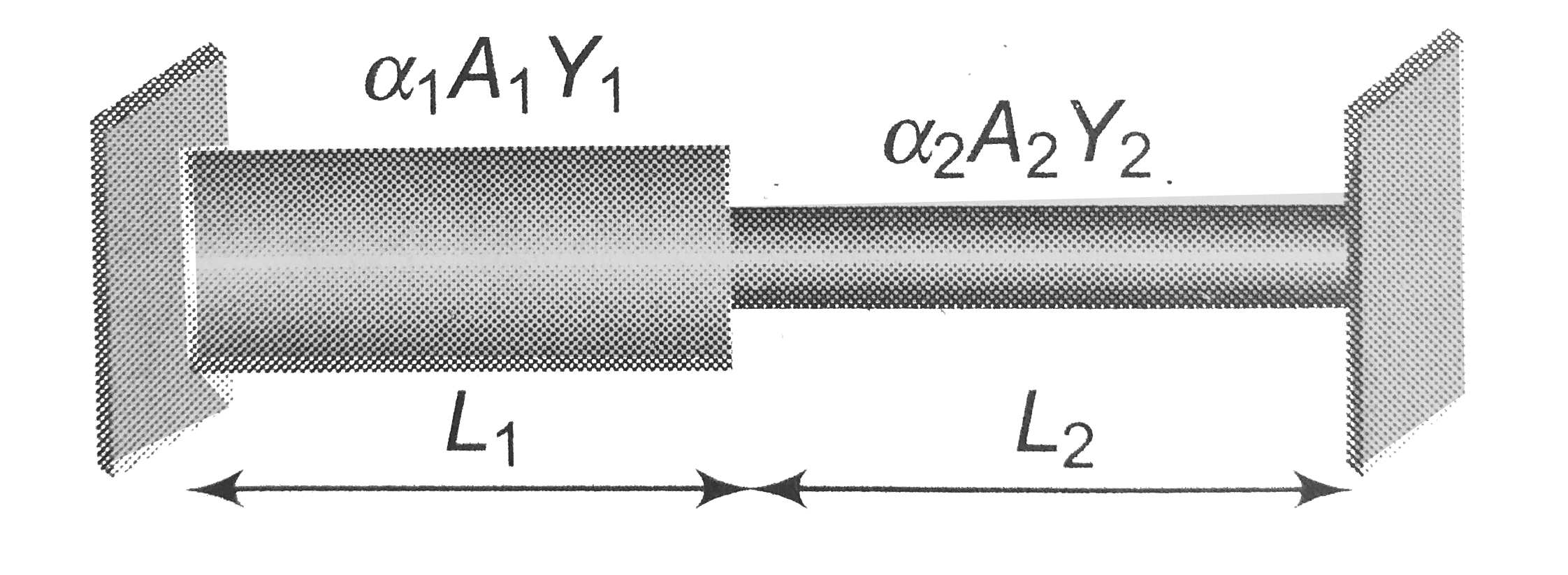Complete Solutions to PRACTICE QUESTIONS (Single Correct Choice Type) of chapter TEMPERATURE, ZEROTH LAW OF THERMODYNAMICS AND THERMAL EXPANSION of Class 12 book with complete answers and questions
| Class 12 | PHYSICS |
| Chapter | TEMPERATURE, ZEROTH LAW OF THERMODYNAMICS AND THERMAL EXPANSION |
| RESNICK AND HALLIDAY | PRACTICE QUESTIONS (Single Correct Choice Type) |
| Number Of Questions | 33 |
| Academic Year | 2023-24 |
In constructing a thermometer it is necessary to use a substance that
View SolutionWhat is the limiting low temperature of a physical object?
View SolutionA balloon is filled with cold air and placed in a warm room. It is NOT in thermal equilibrium with the air of the room until
View SolutionThree thermometer are placed in a closed, insulated box and are allowed to reach thermal equilibrium . One is calibrated in Fahrenheit degrees, one in Celsius degrees, and one in Kelvins. The Celsius thermometer reads `-40^@C` and the Kelvin thermometer reads 233 K. Which one of the following statements is necessarily true ?
View SolutionSuppose object C is in thermal equilibrium with object A and with object B. The zeroth law of thermodynamics states
View SolutionThe " triple point " of a substance is that point for which the temperature and pressure are such that :
View SolutionMetal pipes used to carry water sometimes burst in the winter. This is because
View SolutionA constant - volume gas thermometer is used to measure the temperature of an object . When the thermometer is in contact with water at its triple point (273K) the pressure in the thermometer is `8.50 xx10^(4) Pa` . When it is contact with the object the pressure is `9.650 xx10^(4) Pa` . The real temperature of the object is
View SolutionThe diagram shows four thermometers. labeled W,X,Y and Z. The freezing and boiling points of water are indicated . Rank the thermometers according to the size of a degree in their scales, smallest to largest .

View SolutionWhich one of following properties could not be used as a temperature sensitive property in the construction of thermometer ?
View SolutionThere is a temperature at which the reading on the Kelvin scale is numerically
View SolutionThe coefficient of linear expansion of aluminium is `23xx10^(-6)//""^@C` . A circular hole in an aluminium plate 2.725 is cm in diameter at `0^@C` .What is the diameter of the hole if the temperature of the plate is raised to `100^@C` ?
View SolutionA thermometer indicates `98.6^@C` . It may be
View SolutionA copper plate has a length of 0.1 m and a width of 0.12 m at `25^@C` . The plate is uniformly heated to `175^@C`. If the liner expansion coefficient for copper is `1.7 xx10^(-5)//""^@C` what is the change in the area of the plate as a result of the increase in temperature ?
View SolutionIt is more difficult to measure the coefficient of volume expansion of a liquid than that of a solid because
View SolutionA steel string guitar is strung so that there is negligible tension in the strings at a temperature of `24.9^@C` . The guitar is taken to an outdoor winter concert where the temperature of the string decrease to `- 15.1 ^@C` . The cross-sectional area of a particular string is `5.5 xx10^(-6)m^2` . The distance between the points where the string is attached does not change . For steel , Young's modulus is `2.0 xx10^(11) N//m^2` , and the coefficient of linear expansion is `1.2 xx10^(-5)//""^@C` . Use your knowledge of liner thermal expansion and stress to calculate the tension in the string at the concert.
View SolutionThe strips of iron and zinc are riveted together to from a bimetallic strip which bends when heated . The iron is on the inside of the bend because
View SolutionThe coefficient of linear expansion of a certain of a certain solid is `9xx10^(-6)//""^@C` Assuming this solid behaves like most solids , what is its coefficient of volume expansion ?
View SolutionThe given figure shows a brass disk tightly filled into a steel tube. The coefficient of linear expansion of the brass is `2.00 xx10^(-5) ` per `""^@C` . The system was assembled by cooling the disks in dry ice `(-57^@C)` to enable them to just slide into the close-fitting tube. If the diameter of a disk is 80.00 mm at `43^@C` , what is its diameter in the dry ice?

View SolutionA tanker ship is filled with `2.25 xx10^(5) m^3` of gasoline at a refinery in southern Texas when the temperature is `17.2 ^@C` .When the ship arrives in New York City, the temperature is `1.3^@C` . If the coefficient of volume expansion for gasoline is `9.50xx10^(-4)//""^@C` , how much has the volume of the gasoline decreased when it is unloaded in New York ?
View SolutionThe figure shows a rectangular brass plate at `0^@C` . in which there is cut a rectangular hole of dimensions indicated .if the temperature of the plate is raised to `150^@C` , then

View SolutionThe coefficient of volume expansion for gold is `4.20xx10^(-5)//""^@C` . The density of gold is 19 300 `kg//m^3` at `0.0^@C` . What is the density of gold at `1050^@C` ?
View SolutionDermatologists often remove small precancerous skin lesions by freezing them quickly with liquid nitrogen, which has a temperature of 77 K. What is this temperature on the (a) Celsius ?
View SolutionAn aluminium baseball bat has a length of 0.86 m at a temperature of `17^@C` . When the temperature of the bat is raised , the bat lengthens by 0.000 16 m . Determine the final temperature of the bat.
View SolutionWhen the temperature of a coin is raised by `75^@C` , the coin's diameter increase by `2.3xx10^(-5)m` . If the original diameter of the coin is `1.8 xx10^(-2)` m, find the coefficient of linear expansion .
View SolutionThe given figure shows that,two thin strips of metal are bolted together at one end have the same temperature. One is steel , and the other is aluminium . The steel strip is 0.10% longer than the aluminium strip. By how much should the temperature of the strips be increased, so that the strips have the same length ?

View SolutionAt a temperature of `0^@C` , the mass and volume of a fluid are 825 kg and `1.17 m^3` . The coefficient of volume expansion is `1.26 xx10^(-3)//""^@C` . What is the density of the fluid when the temperature has risen to `20.0^@C` ?
View SolutionA steel rod of length `L_0` . has a cross sectional area A. The force required to stretch this rod by the same amount as the expansion produced by heating it through `DeltaT` is (coefficient of linear expansion of steel is `alpha` and young's modulus for steel is Y ).
View SolutionA piece of metal floats on mercury. The coefficients of volume expansion of the metal and mercury are `gamma_1` and `gamma_2` respectively. If the temperatures of both mercury and the metal are increased by an amount `DeltaT`, the fraction of the volume of the metal submerged in mercury changes by the factor............
View SolutionThree rods of equal of length are joined to from an equilateral triangle ABC. `D` is the midpoint of AB. The coefficient of linear expansion is `alpha_(1)` for AB and `alpha_(2)` for `AC` and `BC` . If the distance `DC` remains constant for small changes in temperature,

View SolutionAn iron rod of length 50 cm is joined at an end to an aluminum rod of length 100 cm. All measurements refer to `20^(@)C` . The coefficients of linear expansion of iron and aluminum are `12xx10^(-6)//^(@)C and 24xx10^(-6)//^(@)C`, respectively. The average coefficient of expansion of composite system is :
View SolutionTwo rods are joined between fixed supports as shown in the figure. Condition for no change in the length of individual rods with the increase of temperature will be
`"(" alpha_(1), alpha_(2)=` linear expansion coefficient
`A_(1), A_(2)=` Area of rods
`Y_(1), Y_(2)=` Young modulus `")"`

View SolutionAn iron ball (coefficient of linear expansion`=1.2xx(10^(-5)//^(@)C`) has a diameter of 6 cm and is 0.010 mm too large to pass through a hole in a brass plate (coefficient of linear expansion`=1.9xx10^-5//^(@)C`) when the ball and the plate are both at a temperature of `30^@C` At what common temperature of the ball and the plate will the ball just pass through the hole in the plate ?
View Solution
PRACTICE QUESTIONS (Single Correct Choice Type) questions and complete solutions for chapter TEMPERATURE, ZEROTH LAW OF THERMODYNAMICS AND THERMAL EXPANSION of RESNICK AND HALLIDAY PHYSICS (HINGLISH) of Class 12